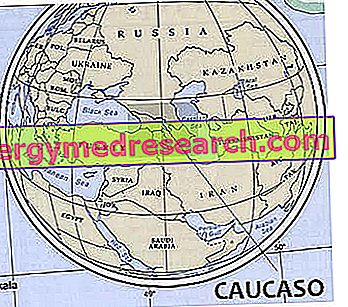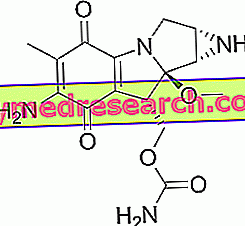Introduction
Nocturnal tachycardia is a significant increase in heart rate that occurs during the night.

More in detail, nocturnal tachycardia is a symptom that can be associated with different conditions, both pathological and non-pathological.
Contrary to what one might think, in fact, nocturnal tachycardia is not always correlated to cardiac pathologies, but can also be induced by disorders having different origins.
In the course of the article, therefore, the main causes of nocturnal tachycardia, the associated symptoms and the possible treatments that can be carried out to counteract it will be briefly analyzed.
What is that
What is Night Tachycardia?
Nocturnal tachycardia is a symptom that can originate from various disorders and diseases not necessarily related to the cardiovascular system.
In this regard, it is good to remember that, in the adult, one can speak of tachycardia when the resting heart rate exceeds 100 beats per minute (bpm).
The appearance of nocturnal tachycardia can lead to the awakening of the individual who, feeling the increased heart rate, may worry or panic, further worsening the problem.
Although, as will be seen in the article, in many cases nocturnal tachycardia does not represent a serious condition, the symptom should not be underestimated, especially if it tends to occur for several consecutive nights or if it is associated with other symptoms that could be index of serious underlying pathological conditions. In such situations, the doctor's advice is essential.
Causes
What are the causes of nocturnal tachycardia?
As mentioned, nocturnal tachycardia is a symptom that can occur following causes of different origins and nature. These include:
- Pathological conditions affecting the heart, such as heart rhythm disorders (pathological arrhythmias), damage to heart tissue (for example, due to a previous myocardial infarction), heart failure, etc.
- Anxiety disorders, panic attacks and stress : in many cases, tachycardia can represent the somatization of anxious states and particularly intense stress conditions, as can be a sign of the onset of panic attacks.
- Hyperthyroidism : the excessive production of thyroid hormones that characterizes hyperthyroidism also affects the cardiovascular system, inducing an increase in heart rate and an increase in the force of contraction of the heart.
- Anemia : the presence of anemia can have negative repercussions on the heart causing tachycardia. Because of the disease, in fact, the various organs and tissues receive smaller amounts of oxygen; the heart, therefore, in an attempt to compensate for this condition, tries to work more in order to guarantee the correct supply of oxygen to all the districts of the organism.
- Poor digestion and gastroesophageal reflux : sometimes, nocturnal tachycardia can be caused by poor digestion - due, for example, to a too abundant and "heavy" meal - or the presence of gastroesophageal reflux.
- Alcoholism and smoking : both of these conditions of dependence - respectively on alcohol and tobacco smoke - can affect the heart rate, causing tachycardia, even at night.
- Taking some types of drugs : nocturnal tachycardia can manifest itself as a side effect of drugs taken before going to bed or in the evening hours. Examples of such drugs are: anti-asthmatics, drugs against hypothyroidism, ephedrine, decongestants, adrenaline, etc.
- Hormonal changes : the appearance of nocturnal tachycardia may also occur in response to hormonal changes and alterations. It is not surprising, therefore, that several women happen to experience this symptom just before the menstrual cycle or during menopause.
- Taking stimulants before bedtime, such as caffeinated drinks.
- Taking drugs .
Did you know that ...
Episodes of nocturnal tachycardia can also be caused by nightmares as a result of the emotions - negative but particularly intense - that they are able to generate.
Associated manifestations and symptoms
What are the manifestations and symptoms associated with nocturnal tachycardia?
The nocturnal tachycardia manifests itself in a clear and sudden manner, causing the individual to awaken and arousing his concerns. The palpitations are the direct consequence of nocturnal tachycardia, but also of the diurnal one, regardless of the triggering cause.
However, depending on the cause that gave rise to the symptom in question, it is possible that different or more serious symptoms may occur, the intensity of which may vary from patient to patient. These include:
- Sensation of chest tightness and chest pain (these symptoms can be caused either by severe heart disease or by gastroesophageal reflux);
- Breathing difficulties (dyspnea) and shortness of breath;
- Cold sweats;
- Edema;
- Burning and / or stomach pain;
- Nausea and vomit;
- Dizziness;
- Syncope;
- Vision disorders;
- Sensation of anxiety (a typical symptom of anxiety which, however, may also arise due to a bad nightmare);
- Nervousness;
- Asthenia;
- Hot flashes (typical symptom of the menopausal period).
Of course, these are just some of the symptoms that can occur in association with nocturnal tachycardia. The symptomatology, in fact, can vary a lot from individual to individual, not only according to the cause that triggered nocturnal tachycardia, but also according to its severity and its pathological or non-pathological nature.
When to worry
When to worry and when to go to the doctor?
Fortunately, in most cases, nocturnal tachycardia tends to regress spontaneously within a short time. If the symptom manifests itself sporadically, if it tends to self-purge within a few minutes and if it is possible to identify a potential non-pathological cause (for example, excessively abundant evening meals, coffee intake before bedtime, medication intake, intake of alcohol or drugs, etc.), generally, it is not necessary to be alarmed because, in all probability, the event in question does not hide pathological causes. However, for greater peace of mind, it is still possible to seek medical advice.
On the contrary, when nocturnal tachycardia occurs frequently, lasts for a long time and / or is associated with "suspicious" symptoms, resorting to consulting a doctor is essential. If the symptomatology is particularly worrying (for example, syncope, chest tightness, etc.), when the event occurs it would be good to contact the medical help or go to the nearest emergency room.
Diagnosis
Importance of Diagnosis in the Presence of Nocturnal Tachycardia
In the presence of nocturnal tachycardia, a correct diagnosis by the doctor is essential to identify the presence of any pathological conditions that may have given rise to the symptom.
When the patient turns to the doctor, therefore, it is the duty of this healthcare professional to collect all possible information about the event that occurred and about the symptoms reported by the patient ( medical history ). Only on the basis of the data collected, the doctor could be able to sketch a first diagnosis that can be confirmed by performing blood tests (hematocrit and other more detailed and specific analyzes), diagnostic tests (for example, electrocardiogram, Holter cardiac and echocardiogram, gastroscopy, ultrasound of the thyroid, etc.) and specialist visits (cardiological, gastroenterological, endocrinological, psychiatric, etc.).
Treatments and Treatments
Treatments and Treatments against Night Tachycardia
Of course, the treatment of nocturnal tachycardia is dependent and closely related to the cure, or in any case to the resolution of the cause that triggered it. Therefore, the importance of performing a correct diagnosis is reiterated.
Generally, when nocturnal tachycardia is caused by non-pathological conditions, it is not necessary to intervene with specific treatments, but it is sufficient to adopt a few simple behavioral measures, such as:
- Avoid the consumption of evening meals that are too abundant and based on foods that are difficult to digest;
- Avoid taking stimulants before going to bed, such as coffee or some carbonated soft drinks;
- Avoid alcohol consumption during the evening;
- Avoid the smoke of stable;
- Stop taking medications that can induce nocturnal tachycardia (however, it should be noted that interruption of an ongoing therapy should only take place if expressly suggested by the doctor);
- Reduce stress and worries as much as possible.
Pharmacological Treatments
Instead, in the presence of nocturnal tachycardia caused by pathological causes, it may be necessary to resort to pharmacological treatments. Obviously, drug therapy must be established by the doctor or specialist, after careful diagnosis, based on the type and severity of the pathological condition that gave rise to the symptom. Among the possible drugs that can be used to combat nocturnal tachycardia and its causes, we remember for example:
- Antiarrhythmics and beta-blockers in the presence of heart rhythm disorders;
- ACE inhibitors and sartans in heart failure;
- Gastroprotectors and antacids in case of gastroesophageal reflux;
- Drugs for the treatment of hyperthyroidism in patients with this thyroid disorder;
- Smoking cessation drugs.
For more detailed information on all the therapies available for the treatment of possible pathological causes of nocturnal tachycardia (cardiac pathologies, hyperthyroidism, anemia, anxiety, panic attacks, alcoholism and smoking, gastroesophageal reflux, etc.), see the reading of the dedicated articles on this site.
Non-Pharmacological Treatments
Among the non-pharmacological treatments that can be used against nocturnal, but also daytime, tachycardia, we find the Valsalva maneuver . However, since this maneuver may not be suitable for all patients, it should only be done on the precise instructions of the doctor.
In the event that nocturnal tachycardia is caused by pathological anxiety or by various types of addiction, the typical non-pharmacological treatment of these conditions is cognitive-behavioral therapy and supportive psychological therapy .



